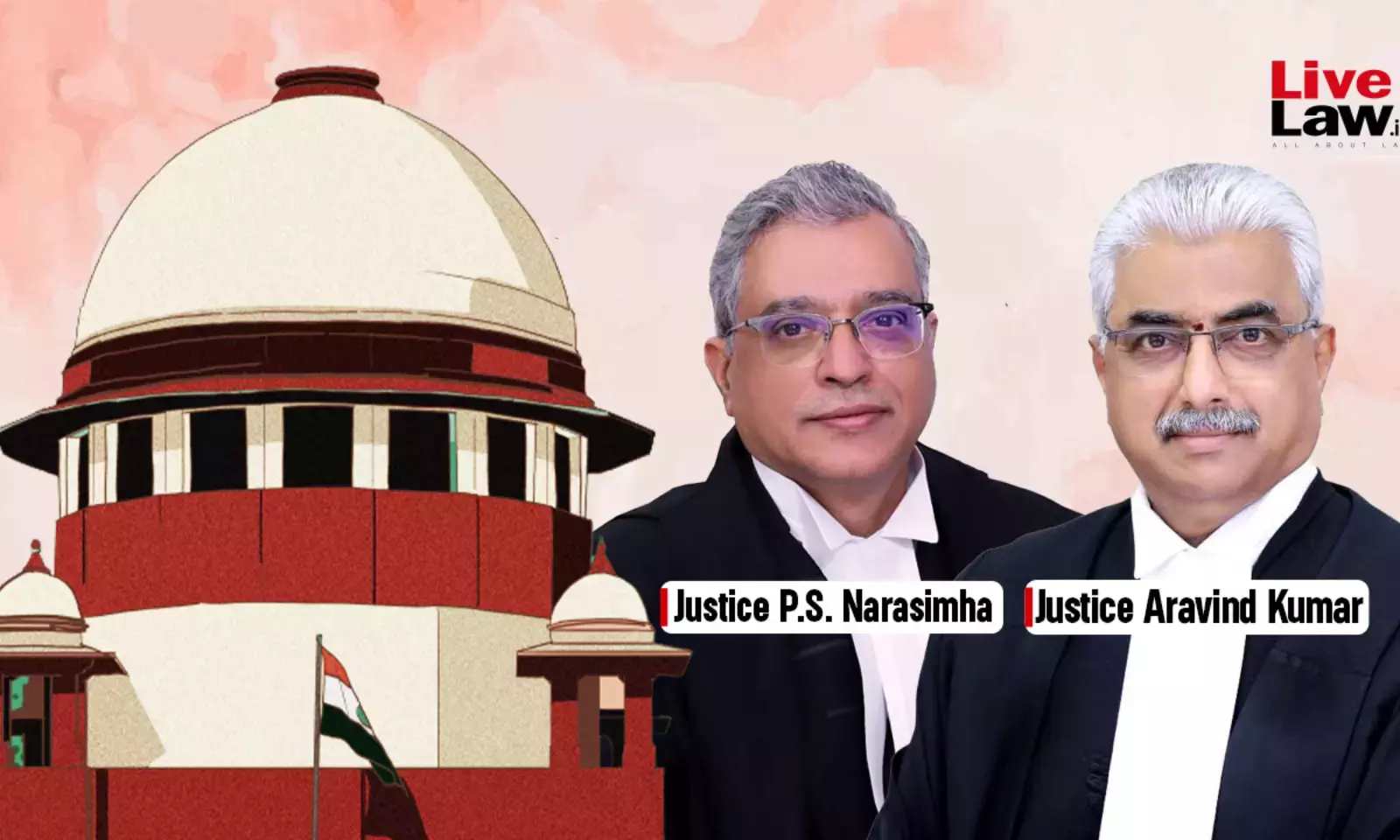- Home
- /
- Supreme court
- /
- Right To Property | 7 Sub-Rights...
Right To Property | 7 Sub-Rights Which State Must Protect During Land Acquisition : Supreme Court Explains
Gyanvi Khanna
16 May 2024 3:25 PM GMT
In a pivotal judgment, the Supreme Court (today on May 16), while setting aside acquisition of land acquired by the Kolkata Municipal Corporation Act, 1980, highlighted seven sub rights of Article 300A of the Indian Constitution. Article 300A provides that “no person shall be deprived of his property save by authority of law”. The judgment authored by Justice PS Narasimha stressed...
In a pivotal judgment, the Supreme Court (today on May 16), while setting aside acquisition of land acquired by the Kolkata Municipal Corporation Act, 1980, highlighted seven sub rights of Article 300A of the Indian Constitution. Article 300A provides that “no person shall be deprived of his property save by authority of law”.
The judgment authored by Justice PS Narasimha stressed that these sub- rights mark the real content of the Right To Property under Article 300A. Non-compliance of these will amount to a violation of the right, being without the authority of law., the Bench, also comprising Justice Aravind Kumar, said.
These sub-rights, as traced in the judgment, are:
- The Right To Notice: duty of the State to inform the person that it intends to acquire his property
- The Right To Be Heard: the duty of the State to hear objections to the acquisition
- The Right To A Reasoned Decision: the duty of the State to inform the person of its decision to acquire
- The Duty To Acquire Only For Public Purpose: the duty of the State to demonstrate that the acquisition is for public purpose
- The Right Of Restitution Or Fair Compensation: the duty of the State to restitute and rehabilitate
- The Right To An Efficient And Expeditious Process: the duty of the State to conduct the process of acquisition efficiently and within prescribed timelines of the proceedings
- The Right Of Conclusion: final conclusion of the proceedings leading to vesting
"These seven rights are foundational components of a law that is tune with Article 300A, and the absence of one of these or some of them would render the law susceptible to challenge," the Court stated.
"These seven sub-rights may be procedures, but they do constitute the real content of the right to property under Article 300A, non- compliance of these will amount to violation of the right, being without the authority of law,"
The judgment further demonstrated how these sub-rights have been, over time, incorporated in laws like the Land Acquisition Act of 1894 and the Right to Fair Compensation and Transparency in Land Acquisition, Rehabilitation and Resettlement Act of 2013. Not only this, but the Court has also recognized the same in sitting through the administrative actions for compulsory acquisition.
“The importance of these principles, independent of the statutory prescription have been recognised by our constitutional courts and they have become part of our administrative law jurisprudence.,” the Court added.
'The Municipal Commissioner May Acquire' In Section 352 Is Not At All The Power Of Acquisition
The concerned land was acquired by the corporation (present appellant) under Section 352 of the Kolkata Municipal Corporation Act, 1980. For ready reference, the relevant portion of the Act reads as:
“Section 352:- Power to acquire lands and buildings for public streets and for public parking places:– The Municipal Commissioner may, subject to the other provisions of this Act – (a) acquire any land required for the purpose of opening, widening, extending or otherwise improving any public street, square, park or garden or of making a new one, together with any building standing upon such land”
The Court pointed out that this provision does not lay down the procedure of acquisition after the Municipal Commissioner decides that any land has to be acquired. The same has been provided in Section 535 (Acquisition of Property) of the Act. Cementing this background, the Court said:
“The scheme of the Act makes it clear that Section 352 empowers the Municipal Commissioner to identify the land required for the purpose of opening of public street, square, park, etc. and under Section 537, the Municipal Commissioner has to apply to the Government to compulsorily acquire the land. Upon such an application, the Government may, in its own discretion, order proceedings to be taken for acquiring the land.”
Based on this, the Court categorically rejected the corporation's stance that it could acquire land by virtue of Section 352 of the Act. Also, it was against this backdrop that the Court delved into the Right to Property and outlined the above sub-rights. It was also highlighted that even though the Right To Property ceased to be a fundamental right, it remained a constitutional right under Article 300-A of the Indian Constitution.
In view of this, the Court concluded that simply having the right to acquire property and guarantee of fair compensation are not enough. It's also crucial to follow the above-mentioned sub-rights/ procedures before taking away property, as outlined in Article 300A to ensure lawful authority.
“…valid power of acquisition coupled with the provision for fair compensation by itself would not complete and exhaust the power and process of acquisition. Prescription of the necessary procedures, before depriving a person of his property is an integral part of the 'authority of law', under Article 300A and, Section 352 of the Act contemplates no procedure whatsoever.”
Before parting, the Court brought out on record that the entire exercise of the power was illegal, illegitimate and has caused great difficult to the opposite party. Thus, the Court, while dismissing corporation's plea, levied a cost of Rs. 5,00,000/-.
Case Title: KOLKATA MUNICIPAL CORPORATION & ANR. V. BIMAL KUMAR SHAH & ORS., CIVIL APPEAL NO. 6466 OF 2024
Citation : 2024 LiveLaw (SC) 382
Click here to read/ download the judgment


